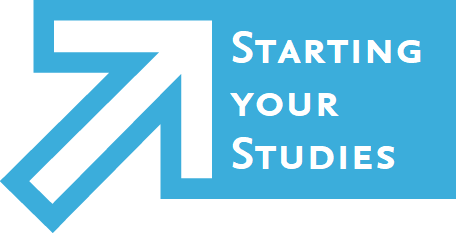Economics
- Master´s programs
Economics (WE 2)
14195 Berlin
For admission to the master’s program applicants must fulfill the following requirements:
- The applicant must hold a higher education degree or professional qualification from a German or comparable non-German institution.
- They must be able to provide proof that they acquired at least forty-two credit points in economics in their previous higher education degree as well as at least 24 credit points in quantitative methods (mathematics, statistics, or econometrics), including at least 6 credit points in econometrics. In total the applicant must have acquired at least 78 credit points in economics and quantitative methods. Credit points in business administration will not be counted in this regard.
- If you have a university degree in mathematics or physics you can be admitted to the program if you can prove that you gained at least 15 credit points in economics and at least 50 credit points in quantitative methods (mathematics, statistics, or econometrics).
- Proof of English language skills (level B2 CEFR or higher) is required for students whose first university degree is not from an institution where English is the language of instruction or for whom English is not their first language. The required level of English can usually be verified by submitting a copy of your German higher education entrance qualification (Abitur).
- Proof of German language skills (DSH certificate) is required for students whose first university degree is from a university outside of Germany or another equivalent institution. While the majority of our courses are taught in English, some of our courses are also held in German. Otherwise, it is quite useful to have good German language skills for the purposes of independently organizing your studies.
You can find more information in our admission regulations (in German).
You do not have to pay tuition fees at Freie Universität Berlin. Administrative fees and a regular contribution to the semester ticket for public transportation are the only payments you will need to make.
Our master’s program provides you with a solid foundation in economics while also giving you plenty of breadth to pursue your own interests in your studies. Along with gaining advanced theoretical and empirical knowledge in line with the latest international research, students in the program acquire key qualifications and transferable skills that enable them to independently carry out academic work and communication, critically assess research findings, and engage in responsible conduct. Graduates of the master’s program have the requisite skills to produce research contributions in specific subject areas as well as to develop appropriate solutions to complex problems in applied fields of economics.
For more information, please visit the program's website (linked above).
One of the specific advantages of our department is that we cooperate closely with the different central institutes at Freie Universität. You will get the opportunity to attend economics courses at the Institute for East European Studies, Institute for Latin American Studies, and the John F. Kennedy Institute for North American Studies if you so wish. By examining economic research questions related to a specific regional context, you can become an expert in one of the above regions while pursuing your studies.
Another unique feature of studying at our department is that we work together with the German Institute for Economic Research (DIW Berlin). This gives you the chance to learn directly from the researchers of this prestigious institution and gain exclusive insights into current research.
The master’s program in Economics consists of required modules, a wide range of required electives, and a master’s thesis that forms a capstone to your studies.
Through the required modules (totaling 24 credit points) students gain the solid background in economics typically expected in a master’s degree program. Building on the knowledge you acquired in your bachelor’s program, you will study microeconomics and macroeconomics in greater detail while also deepening your understanding of econometric methods. You will present and discuss the research outcomes of your master’s thesis in the module “Academic Practice.”
Our master’s degree program is designed to offer you the greatest possible freedom of choice to explore your different interests. That is why required electives (adding up to 72 credit points) form the bulk of the program. A large selection of modules are available from the following three overarching specializations:
- Economic Theory
- Empirical Economics
- Economic Policy Analysis
You will complete two in-depth modules – each worth 12 credit points – in at least one of these specializations in order to develop your own individual research profile. The focus here lies on students conducting their own academic research. You can also attend other lectures and seminars from the topics modules (worth 6 credit points) in order to pursue broader interests. Students who are looking for a particular intellectual challenge can participate in advanced modules (worth 6 credit points), which can sometimes be credited toward a doctoral degree later on.
The degree program culminates in the master’s thesis (worth 24 points), which should show that students are able to conduct independent research using scientific/academic methods and present their work. The master’s thesis is accompanied by a colloquium (Academic Practice) in which students present and discuss the results of their research.
Upon successful completion of the master’s degree program, the student will receive a Master of Science (M.Sc.) university degree.
The structure and progression of the program are laid out in the degree program and examination regulations, which also include detailed descriptions of the contents and learning objectives for the individual modules as well as a standard curriculum plan.
For more information, please visit the program's website (linked above).

